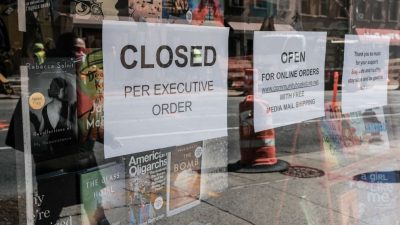Coronavirus Protocols as Tools of Repression

Covid-19 is a convenient excuse for governments to ban or restrict activities they don’t like.
Whatever the scientific truths about coronavirus, state measures to control it undoubtedly have great potential for justifying state repression and surveillance. A friend of mine remarked that “it’s beyond the Patriot Act authors’ wildest dreams.” In Africa, it’s been crudely weaponized to suppress elections, as witnessed in Uganda and Ethiopia.
During the third week of November, Ugandan military police arrested pop star and presidential challenger Bobi Wine, alleging that his campaign rallies of more than 200 people violated state protocols for stopping the spread of coronavirus. They then shot dead 56 people protesting his arrest and arrested 836 with seeming unconcern that the virus might spread among them in jail.
This week police and military opened fire on Bobi Wine’s campaign convoy in the Ugandan countryside. They struck and disabled the vehicle he was traveling in and injured several of his campaign colleagues. In a Ghetto TV video, shot by his campaign team, he could be heard shouting at police, as munitions exploded around him, “Why are you trying to murder me?”
Aljazeera then reported that Bobi Wine had suspended his campaign because of the state violence, but shortly thereafter, he reappeared campaigning in a helmet and bulletproof vest. In another campaign video, he reported that police had ordered hotels not to admit his team and that they had therefore slept in their vehicles on the streets.
Earlier this year, in Ethiopia, the central government led by Prime Minister Abiy Ahmed postponed this year’s elections until 2021 because of the coronavirus, he said. Dissidents said, however, that he had used the virus as an excuse to buy time to consolidate power. The Tigrayan People’s Liberation Front (TPLF) , which lost its brutal, minority grip on power in 2018, held regional elections anyway and then attacked an Ethiopian army base in the Tigrayan region, drawing an Ethiopian military response and sending refugees fleeing into South Sudan, where they risk contracting COVID-19 in crowded, makeshift camps.
As of December 8, Coronovirus Worldometer reported that 207 people have died of COVID-19 in Uganda, four per million people, and that 1,766 people, fifteen per million, have died of the disease in Ethiopia .
In both African countries, these coronavirus mortality statistics are far lower than those caused by malaria and/or lack of health care. In Uganda, roughly 10,000 die annually of malaria; in Ethiopia, 883 died of malaria in 2016. Uganda has some of the world’s most shocking maternal death statistics , with 440 deaths per 100,000 live births. Both country’s electoral and social justice movements have far greater potential to lengthen and qualitatively enhance their citizens’ lives than their leaders’ crudely repressive coronavirus restrictions.
Repressive measures in the US?
US coronavirus statistics, again on Coronavirus Worldometer as of December 8 , are 290,443 deaths, roughly 875 per million people. These numbers arguably justify mandatory mask wearing and measures restricting movement, business, and public assembly, but that doesn’t mean that state measures haven’t been repressive. The CARES Act further entrenched power upwards by redistributing vast wealth to oligarchs and mega corporations, just as the bank bailout did, and as future “stimulus” packages likely will, no matter which of the duopoly parties craft them. Workers struggle, small businesses close their doors, long lines queue either in cars or standing six feet apart outside food banks, and we face a dystopic future in which most of us work and shop at a few mega corporations, possibly including an Uber-Lyft-Doordash-Instacart conglomerate before Amazon swallows them all whole. Poor people, people of color, prisoners, and farmworkers all suffer disproportionately from the disease and the economic consequences of the lockdowns.
One of the only positive developments is that the virus didn’t stop Black Lives Matter protestors from rising up across the country in response to the murders of George Floyd, Breonna Taylor, and other victims of racist police and vigilante attacks. California locked down tight again this week but did not ban outdoor public protest. These protests took place, however, in the context of the fierce polarization on either side of President Donald Trump, which saw mayors and legislators in Democratic majority cities vocally resisting the various operatives and tactical forces Trump dispatched to shut them down. Had coronavirus come along in 2011, it would no doubt have been added to President Obama’s strategy for shutting down Occupy.
In next week’s Black Agenda Report, I plan to look into the surveillance and censorship issues that arise as government moves to control both the virus and the public narratives about it.
*
Note to readers: please click the share buttons above or below. Forward this article to your email lists. Crosspost on your blog site, internet forums. etc.
Ann Garrison is an independent journalist based in the San Francisco Bay Area. In 2014, she received the Victoire Ingabire Umuhoza Democracy and Peace Prize for her reporting on conflict in the African Great Lakes Region. Please help support her work on Patreon . She can be reached at ann(at)anngarrison.com.

